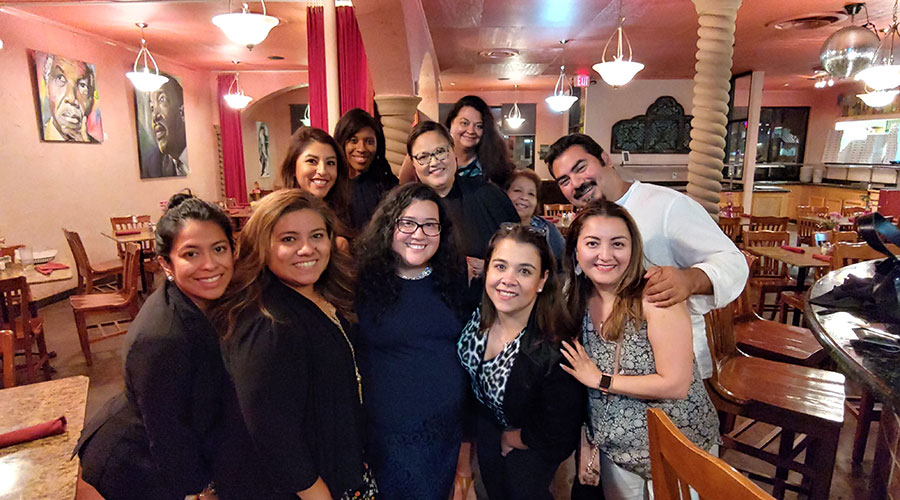
Meet Amanda Arizola: Advocating for Community Well-Being Through Financial Literacy and Social Change
Brought to you by Texas Health Community Hope
Well-Being Matters is an on-going series highlighting different members of our community and their strategies for well-being. Texas Health Community Hope engages in a broad range of innovative programs, investments, and collaborations outside hospital walls to promote a lifetime of holistic health and well-being. This month we meet Amanda Arizola. A fourth-generation resident of Fort Worth and a sixth-generation Texan, Arizola wears multiple hats as she represents Latina women in the non-profit arena.
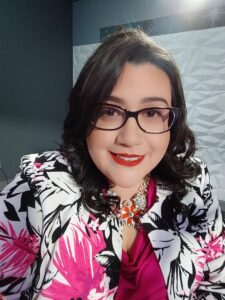 Q: You impact the well-being of those around you with your advocacy through multiple community roles. Some of these are paid positions, but some are volunteer. Tell us about that.
Q: You impact the well-being of those around you with your advocacy through multiple community roles. Some of these are paid positions, but some are volunteer. Tell us about that.
A: I have a strong passion for financial literacy, management, and coaching and I’ve worked in the non-profit world for 25 years. My primary job is as the non-profit North Texas Program Officer at Asset Funders Network, supporting grant makers who focus on economic security and asset building.
Q: Economic security and asset management are the ribbons that run through all you do. As a financial coach, you work with multiple age groups. What have you learned about people who are just getting started in investing – those who are just graduating from college?
A: Gen Z and Gen A– I am not worried about them. The questions they ask at such a young age include “How do I retire my parents?” They will be millionaires! They have great curiosity and tend to be very good with their money.
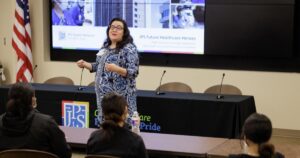 Q: You’re also an adjunct professor at UTA where you’re deeply involved in advocating for social change.
Q: You’re also an adjunct professor at UTA where you’re deeply involved in advocating for social change.
A: I work in the Social Work department, teaching social policy. I’m hopeful for the future. It’s cool to hear their ideas. You need the individuals who are making the noise, but you also need the individuals working in the background to actually change the policy.
Q: In another role, you’re a member of the Board of Managers for JPS, our county’s public hospital. What does that entail?
A: As an appointee to the board, we are the governing body and help drive the mission of the hospital, including financial matters. I serve under Tarrant County Commissioner Alisa Simmons, who prioritizes health care and health equity.
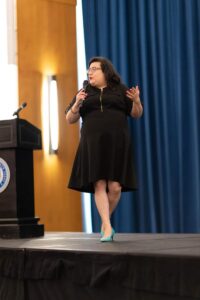 Q: And you’re the first Latina on this board?
Q: And you’re the first Latina on this board?
A: The 11-person board includes four people of color and three women. I have the pleasure to serve as the first Latina, which also comes with great responsibility to all communities.
Q: It’s your fifth year on the board. What sticks with you the most about this organization?
A: I was impressed during the first few months when I attended the staff celebrations; seeing employees being recognized for 30 or 40 years of service is amazing. The majority of staff members are there for the long haul. And the staff provides exceptional care.
Q: Talk about your role as co-founder and chief operating officer of COACT.
A: That’s my role as a capacity builder. I encourage solutions that come right from the community. Looking at Tarrant County, we have these skills to create an organization that helps communities dig into their own power. It’s better to have capacity being built locally rather than have a firm from one of the coasts telling us what we need to do.
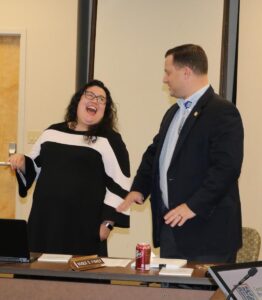 Q: One of the ways that COACT is building capacity is around food insecurity. That’s something that you know a little bit about.
Q: One of the ways that COACT is building capacity is around food insecurity. That’s something that you know a little bit about.
A: I come from a family of migrant farmworkers who picked produce from here to California. My grandfather was a meat packer on Fort Worth’s Northside. One of the most important aspects of farming is remembering that the people who grow our food, our urban farmers, deserve a livable wage.
Q: COACT metaphorically has hands on all aspects of food insecurity, covering farmers markets like the Mindful Market that occurs at Texas Wesleyan University, and supporting growers like Grow Southeast. You’re also trying to address a surprisingly deep issue – homelessness among college students.
A: College homelessness shows up in many forms. We found that the general population does not realize so many students from North Texas schools are couch surfing or do not know where they will lay their head down night after night. They are functionally homeless but continuing to attend classes.

Q: When you were a graduate student at Texas Woman’s University, you had the chance to see this firsthand?
A: TWU had a large international student population who had their tuition and books covered but not their room and board. They would help each other make sure that food was available for everyone. Food is a big issue. Food is cultural. Comfort food can connect and bond people. The way that we cook things bonds us.
Q: And they helped each other get through a time of food insecurity?
A: They’re all thriving doctors, administrators, and dentists now! They survived the lack of room and board. A lot of food insecurity work revolves around how people make ends meet. There’s a lot of resilience in families. I’ve worked with families who are scraping by on $35,000 a year, but they find ways to celebrate life and family.
Learn more about how Texas Health is working to transform healthcare
in the community through Texas Health Community Hope.
